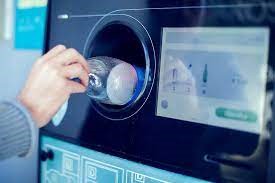
We have delved into EPR – a system that holds manufacturers and producers accountable for either correctly disposing or recycling the waste introduced into the economy by them – now, we will break down a system that incentivizes consumers to dispose their waste appropriately.
Deposit Return Scheme, also known as Deposit Return System, Deposit Refund System, Bottle Bills or Take-Back System, is essentially a surcharge on product, typically contained in a plastic or glass bottle or metal can, that is reimbursed to the purchaser upon return of the empty packaging.
DRSs are introduced to reduce littering and increase recycling rates on the account of the supplementary systems and infrastructure put in place. These systems include abundant and accessible collection centres, establishing a well-connected network of recycling plants and units and collection centres as well as suitable technology required to monitor and track deposits.
DRS can be viewed as an application of the polluter-pays principle and is most commonly implemented by legislation although independent, private bodies can also take the initiative.
Deposit Return Systems, or their informal equivalents, were first introduced as early as the 1800s to minimize financial losses observed due to market expansion and thus diminishing returns of business assets such as glass and stoneware bottles. These events predate the induction of plastic and aluminum as mainstay materials of bottle packaging.
What first appeared to be a solution soon became the reason behind the reintroduction of deposit-return systems. In the 70s and 80s, businesses and brands were excited to no longer invest in and maintain beverage packaging throughout its lifecycle an asset. The popularity of single-use PET bottles and aluminum beverage cans grew as they would be lightweight, disposable, easier to handle and cost-efficient.
The first step in the revamping of DRS to limit a newfound evil was the introduction of curbside recycling.
Ontario was the first in the world to implement curbside collection by the name of “blue box” collection.
The Litter Act of 1970 in British Columbia, Canada also marked a world first by introducing a mandatory refund system for beer and soft drink cans and bottles: the world’s first government legislated deposit return system.
Over 50 jurisdictions worldwide have now implemented Deposit Return Schemes.






